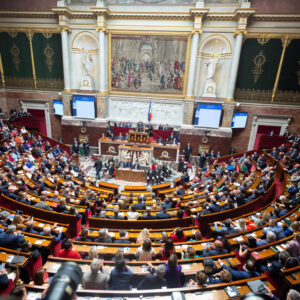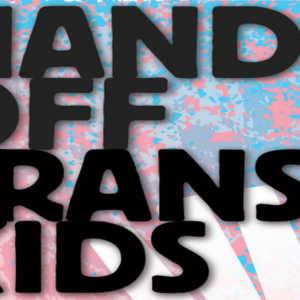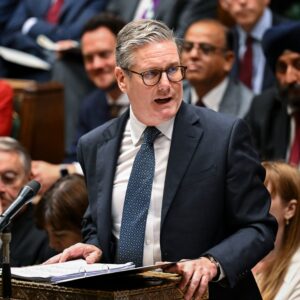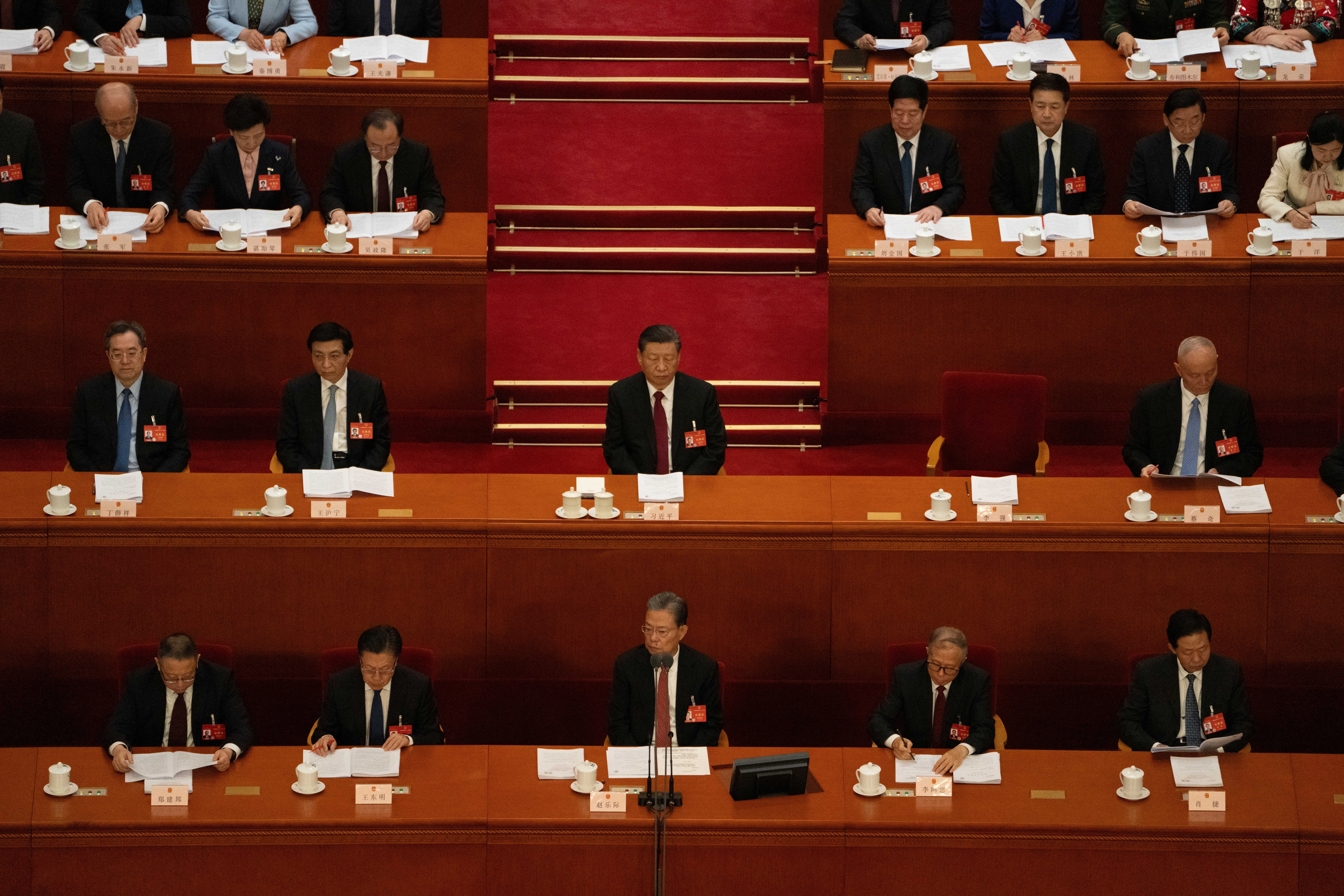Source >> ecosocialist.scot
Winning support
In a week of meetings and events in Madrid, Brussels, Paris, London, Oxford, Glasgow and Grangemouth, Leonidas Iza and his co-authors, Andres Tapia and Andres Madrid, won support from MEPs, British MPs, trade unionists, peasants, climate justice activists, academics, migrants and many others, for a Yes vote in Ecuador’s August referendum.
Iza was a central figure in the Indigenous-led uprising of October 2019, triggered by the removal of fuel subsidies and therefore a sharp rise in the cost of living. He was then elected President of CONAIE, the Confederation of Indigenous Nationalities of Ecuador, the most powerful movement of its kind in Latin America. In that role, he led the follow-up national stoppage, or paro, of June last year. That closed down the country for even longer, 17 days in all, and expanded the list of demands. Alongside opposition to a broader range of neo-liberal policies, mandated by the International Monetary Fund, the Indigenous movement and its allies put at the centre of their struggle the need to halt oil drilling and mining on protected, sensitive and Indigenous land. On both occasions, they forced the government to negotiate and won significant concessions, but not enough.

This August’s referendum, which includes the question on stopping oil drilling in three oil fields known as Block 43, in the Yasuni, and another on limiting mining near the capital, Quito, is in effect a continuation of the 2019 and 2022 struggles. It brings together environmental campaigners with the Indigenous communities and other social movements that staged those insurrections, in a National Anti-mining Front. This combination is itself a significant, if tentative, achievement. The relationship of the Indigenous leaders and mass movement that led the insurrections, with the NGO left that has tended to dominate the environmental movement, has sometimes been difficult in recent years.
Biodiversity hotspot
As Iza and his colleagues repeated many times on their European tour, the campaign for Yasuní is not just about saving one of the most biodiverse spots on the planet. Of course, it is that too. The Yasuni National Park comprises 9,823 sq. kms of rainforest (almost half the size of Wales) in the Ecuadorean Amazon, just 200 kms from Quito and bordering the eastern range of the Andes. Perhaps because it was one of the few places that never froze over during the last ice age, it is one of the most biodiverse areas in the world, possibly the most biodiverse. Botanists have recorded 685 species of tree in one hectare of the Yasuni. That is more than in all of the United States and Canada. The same hectare also contains about 100,000 species of insects, again similar to the total number for North America. The Yasuni National Park is also home to Ecuador’s two Indigenous peoples living in voluntary isolation, the Tagaeri and the Taromenane. The pressure from oil companies operating on the edges of their territory has already resulted in three massacres, putting their survival in jeopardy.
A novel initiative for mitigation
At the same time, the campaign for a Yes in the referendum has a broader international significance, because it revives one of the world’s most original proposals for mitigating climate change. The Yasuni ITT Initiative was launched by the progressive government of Rafael Correa in 2007, during its early, more radical phase. It was based on proposals coming from Indigenous communities in Ecuadorean Amazonia and some environmental NGOs. It proposed leaving in the ground the 20 percent of Ecuador’s oil reserves that had been identified in the Ishpingo, Tambococha and Tiputini oil fields, known as ITT or Block 43, most of which lay beneath the Yasuni National Park. In return, the rich countries would pay Ecuador for not exploiting those reserves. US$3.6 billion over 13 years was what the Correa government was asking for, in public and private sector contributions, when it took the Yasuni ITT initiative to the UN General Assembly in 2007, and to COP15 in Copenhagen two years later, where it formed a central plank of the proposals put forward by the ALBA alliance led by Bolivia, Cuba and Venezuela. That amount was calculated as 50 percent of the money the country would make if it did exploit those reserves. This was emphatically not conceived as compensation or as any kind of offset, nor was the money to be obtained through any sort of carbon market, as Alberto Acosta, Correa’s first energy minister and an architect of the Initiative, repeatedly insisted. The idea was not to leave the oil in the ground beneath the Yasuni National Park in exchange for some northern polluters being allowed to continue their business as usual; on the contrary, the rich countries should pay as part of their responsibility to cut global emissions.
Towards a global just transition
As the ecosocialist theorist, Michael Lowy, suggests in his foreword to the English edition of Iza’s Uprising, the Yasuni ITT Initiative could have been an unparalleled example to other countries – an inspiration for how the global south and the global north, both producers and consumers of fossil fuels, could have engaged together in a just transition away from the carbon economy, in a way that would be fair for communities across the planet.
In the end, President Rafael Correa abandoned the Yasuni Initiative. By 2013, the international pledges amounted to only US$336 million, of which less than 4 percent had actually been delivered. At the same time, the right-leaning and often pro-oil developmentalists in his Citizen Revolution movement had gained ground, bolstering Correa’s own sympathies with the extractive industries – and his impatience with both the Indigenous and environmental movements, which he liked to refer to as “infantile”. Alberto Acosta and others on the radical left in his government had either left or been marginalised. Blaming “the international community” for failing in its response (quite correctly of course), Correa declared the Yasuni Initiative dead, and ordered the state oil company, Petroecuador, to press ahead with drilling. In 2016, oil began to flow from the ITT fields, but in lesser quantities than expected, given the slump in world prices. Nonetheless, Correa’s retreat from the Initiative sealed the already deep breach between his government and the bulk of the Indigenous and environmental movements.
The latter had argued that the oil should be left in the ground, with or without the international financial contribution. Already by 2014, a campaign called Yasunidos, launched by the environmental NGO Accion Ecolologica, had collected enough signatures to trigger a referendum. But the electoral authorities refused to recognise hundreds of thousands of them, and for a number of years the Yasuni question all but disappeared from the political agenda.
The Yasuni returns
It was only in May this year that Ecuador’s Constitutional Court ruled, somewhat unexpectedly, that the call for a referendum was valid. It set the vote to coincide with the snap presidential election on 20 August, called by Ecuador’s right-wing president, Guillermo Lasso, to avoid his own impeachment. Since then, the Yasuni question has burst back into the centre of Ecuador’s political life. In a context that has been fundamentally changed by the two Indigenous-led insurrections of 2019 and 2022, it has unleashed an unprecedented debate on what kind of social and economic development the Ecuadorean people want for their country. It is a debate that cuts through the middle of the electoral options on offer on the same day. It also reveals, once again, the profound contradictions that run through Latin America’s diverse experiences with progressive governments, and their complicated relations with powerful social movements, like the Confederation of Indigenous Nationalities of Ecuador.
For the last decade or more, the left and progressive forces in Ecuador have been riven by a bitter, debilitating division. The supporters of former president Rafael Correa and his Citizen Revolution movement have been ranged against much of the Indigenous and women’s movements (the country’s two most important social movements) and most of the trade unions (much weakened from their high point of the 1980s), as well many environmental NGOs and a number of small far-left groups and currents.
Yasuni, elections and beyond
This split is playing out once again in the presidential election on 20 August. But whether as tragedy or as farce, it may be for the last time. On one side, the favourite to become Ecuador’s next president, possibly in the first round but more likely in a second round in October, is Luisa Gonzalez, the candidate of the Citizen Revolution movement. She has avoided taking a very explicit position on the Yasuni referendum, and her party has said its members will be free to vote as they choose. But like Correa himself, she has left little doubt about her opposition to leaving the oil in the ground. Both insist the country needs the money to build schools and hospitals. Most of the half a dozen candidates vying to represent a discredited right have maintained a similar ambiguity, and used the same arguments.
On the other side, Yaku Perez, who was the candidate of the Indigenous movement’s party, Pachakutik, in the 2021 election and came third, is the only presidential candidate this time to support openly a Yes vote in the Yasuni referendum. He still has the support of the old, right-leaning leadership of Pachakutik and some environmental NGOs, as well as parts of the anti-Correa left and centre-left. But this bloc has lost much of its credibility. In particular, the Pachakutik leaders who engineered his candidacy last time and who led the large group of Pachakutik members in the now-dissolved National Assembly, revealed an extraordinary capacity for opportunism. Putting their virulent anti-Correa stance above loyalty to any particular ideology or policy, they struck a series of deals with Guillermo Lasso’s right-wing government, in exchange for favours and positions. As a result, last April’s national conference of Pachakutik voted them out and elected a new leadership aligned with the positions and priorities of CONAIE itself. They appealed against their removal, and since the National Electoral Council had still not ruled on the dispute, Pachakutik was not allowed to give formal endorsement to any candidates at a national level in this election
Art (47) Book Review (102) Books (106) Capitalism (64) China (74) Climate Emergency (97) Conservative Government (90) Conservative Party (45) COVID-19 (43) Economics (36) EcoSocialism (48) Elections (75) Europe (44) Fascism (52) Film (47) Film Review (60) France (66) Gaza (52) Imperialism (95) Israel (103) Italy (42) Keir Starmer (49) Labour Party (108) Long Read (38) Marxism (45) Palestine (133) pandemic (78) Protest (137) Russia (322) Solidarity (123) Statement (44) Trade Unionism (132) Ukraine (324) United States of America (120) War (349)
The Anti*Capitalist Resistance Editorial Board may not always agree with all of the content we repost but feel it is important to give left voices a platform and develop a space for comradely debate and disagreement.
Latest Articles
- France after the elections: How should the radical left act?In the wake of the National Assembly’s dissolution and new parliamentary configuration, La France Insoumise (LFI) should adopt a clear stance of radical opposition, emphasizing its commitment to anticapitalist principles and democratic reforms while avoiding any compromise with the existing government unless it secures absolute majority support from the populace, argues Gilbert Achcar.
- Why Socialists Oppose the Two‑Child Welfare CapIn this article, Simon Hannah explores why socialists vehemently oppose the government’s two-child welfare cap, arguing that it stems from austerity measures and reactionary views on the poor.
- Hands off Trans KidsA pamphlet from Anti*Capitalist Resistance.
- Two Child Benefit RevoltDave Kellaway responds to the revolt by Labour MPs and others to the Labour government keeping the Tories’ hated two child benefit cap.
- The beginning of the end of China’s rise?This is the second interview in a two-part series. The first interview (“Opposing US militarisation in the Asia-Pacific should not mean remaining silent on China’s emerging imperialism“) covered the nature of China’s state, its status in the world today, and implications for peace and solidarity activism.






